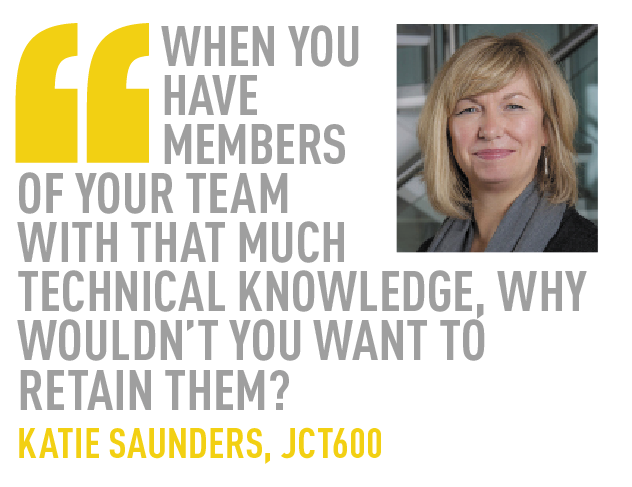Britain’s workforce is aging, the state pension age (SPA) is increasing and more people are likely to work beyond it, into their late 60s and 70s, to supplement their income. What can dealers do to meet the challenges of this changing landscape?
Next year will be the last for accessing the state pension at the age of 65. Between October 2018 and October 2020, the SPA will increase to 66. Between 2026 and 2028, it will rise to 67 and the Cridland Report, an independent review published in May, proposes that it increases to 68 by 2039.
Chris Brooks, Age UK senior policy adviser, said: “My advice to employers would be to keep an open mind and to look beyond the stereotypes surrounding older employees like not wanting to retrain or productivity dropping while they wait for retirement.
“Businesses can look at flexible working, which should be able to be applied to any industry.”
Employees have the right to formally request more flexible or part-time working, but employers can reject the request, as long as they deal with it in a “reasonable manner”.
At AM100 dealer group JCT600, the average age of its 2,300 employees is 40, with 35% 45 and over.
Katie Saunders, JCT600 HR director, said staff are encouraged to approach their manager to have an open and pragmatic discussion about flexible working when they near retirement age.
She said: “We very rarely start that conversation. As long as they’re happy with their hours and how they’re working, why would we want to change things?
“If they do want to talk about reducing their hours or part-time, we’ll sit down and work together in a collaborative way.”
JCT600 approaches changing hours by either seeing if it is possible to accommodate what an employee needs with no changes to staffing, or whether another site within the group may be able to accommodate them. Failing that, it will look at a potential job share with another part-time member of staff or by recruiting another part-time employee.
In other cases, an employee may look at moving to another job within the group that could offer more flexibility, such as a part-time service adviser, driver or host.
Saunders said: “We’ll look at all sorts of options to find a solution. We would much rather retain skills within the business.”
Picador has 165 employees across four dealerships, with an average age of 40. Of those employees, 32 have been with the company for more than 15 years, 10 have worked there for 25 years and there are 60 with more than seven years of service.
Graham Jacobs, Picador chief executive, said: “As we’re a family business, having people work for us for a long time comes with the territory. We have always looked after people.
“We have always taken the approach that they can approach us to talk about flexible working or going part-time when they’re ready to take that step.”
Jacobs joked that older employees are usually so good at their job they can do five days of work in three anyway.
The benefits
Jacobs said older members of staff bring valuable experience, a loyal following of repeat customers and a reduction in repeated training and recruitment costs.
He said: “The longer someone works with your company, the more they really start to get the philosophy that drives your business, too.”
JCT600 has a 69-year-old master technician with 50 years of service. He now helps to train apprentice technicians. Another employee, with 35 years of service, is helping to train a new apprentice at its Porsche Leeds dealership.
Saunders said: “When you have members of your team with that much technical knowledge, why wouldn’t you want to retain them?”
Loyalty
For those who stay within the business, both JCT600 and Picador offer loyalty programmes.
Picador puts together a special night away and a thank you of £1,000 after 25 years of service.
After 15 years, JCT600 awards every employee a “financial gift”, along with a letter of thanks from the chief executive, John Tordoff. They get a bonus and letter every five years after that.
Saunders said: “We’ve also introduced a weekend away where we have a black-tie dinner and a hotel stay with all members of staff – they can bring their partners – that have worked for us for 20 years or more.”
Resources
 Managing a healthy aging workforce
Managing a healthy aging workforce



















Login to comment
Comments
No comments have been made yet.